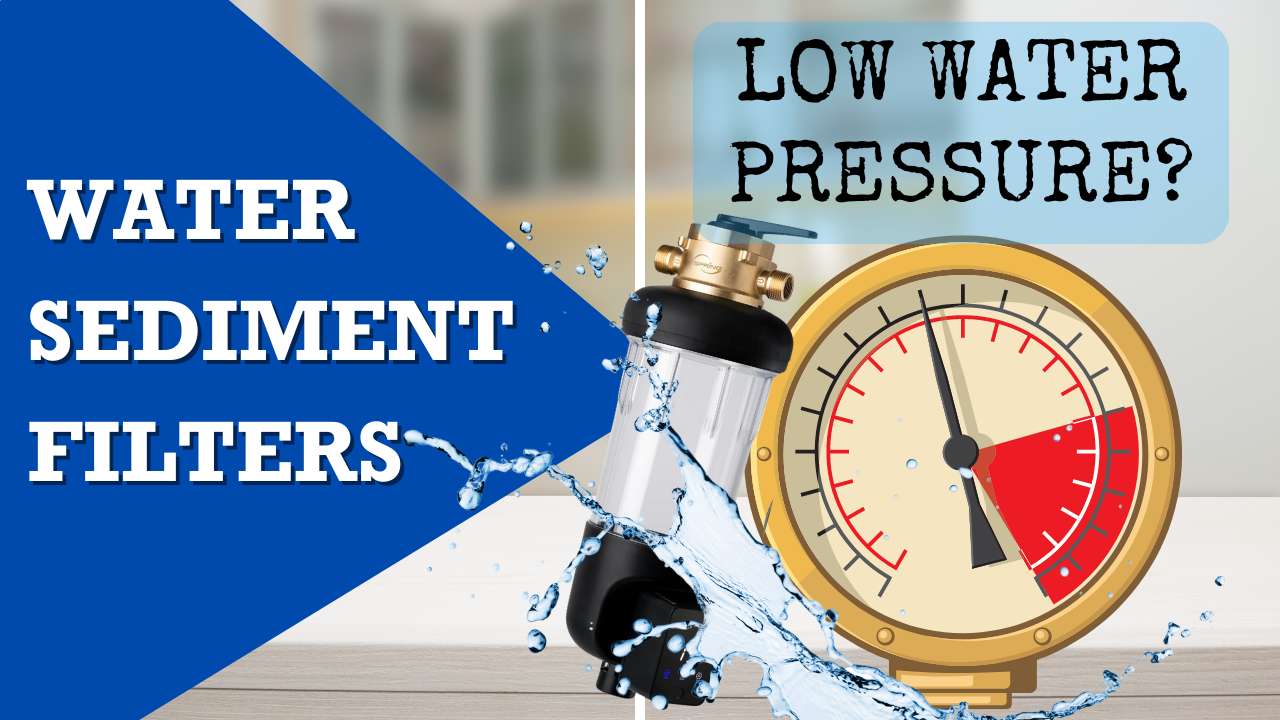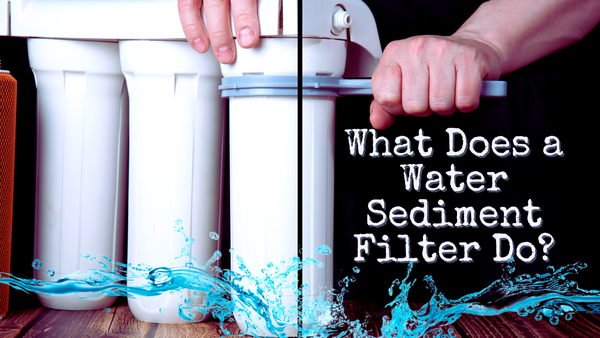Key Takeaways:
- Sediment filters can impact water pressure, but the extent depends on various factors.
- Regular maintenance and proper installation are crucial to maintaining optimal water flow.
- Understanding your home’s water system can help mitigate any potential pressure loss.
When it comes to ensuring clean water in your home, a sediment filter is often a key component of a whole-house water filtration system. A whole house filter is crucial in filtering all water entering a home and removing contaminants and debris from various water sources. But does a sediment filter reduce water pressure? This question is crucial for homeowners who want to maintain a steady water flow while ensuring it is free from contaminants. Let’s dive into the details to understand how sediment filters work and their impact on water pressure.
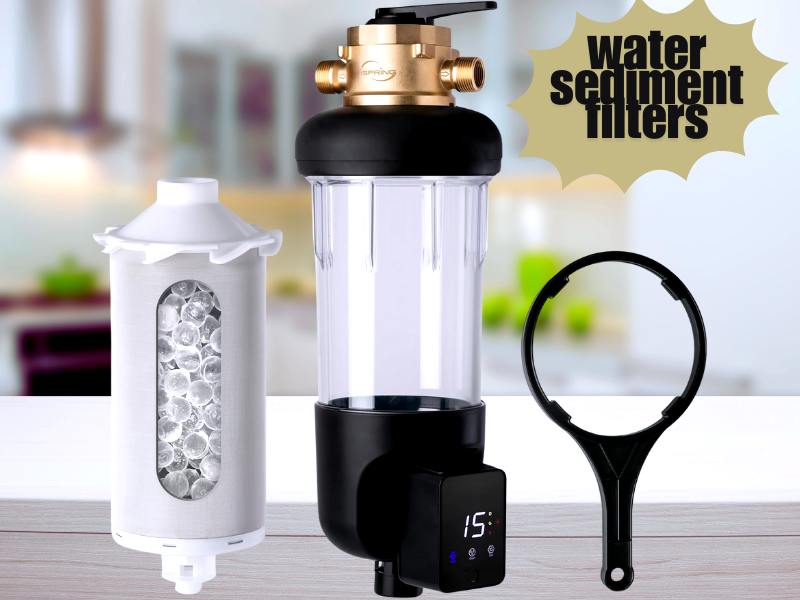
Understanding Sediment Filters
Sediment filters are part of whole-house water filtration systems. They remove large particles of dirt, rust, and silt from the water supply. These filters have a porosity of 1-5 microns, which means they can catch what you can see with your naked eye. Sediment filters are usually the first stage of a multi-stage system, as they protect the next filters from getting clogged with debris.
You must replace sediment filters regularly as they can get clogged over time and reduce water pressure. The replacement frequency depends on the quality of the incoming water and the filter's flow rate. On average, sediment filters must be replaced every 3-6 months.
How Sediment Filters Work
Sediment filters remove sand, silt, and rust from your water supply. They are installed as part of a whole-house filter system, so all the water coming into your home is clean. The filter cartridge catches these particles, so they don’t get to your taps, showers, and appliances.
However, as sediment filters catch more particles, they can get clogged. This clogging can reduce water flow and lower water pressure. Regular maintenance, like replacing the filter cartridge, is key to preventing this.
Water Pressure Factors
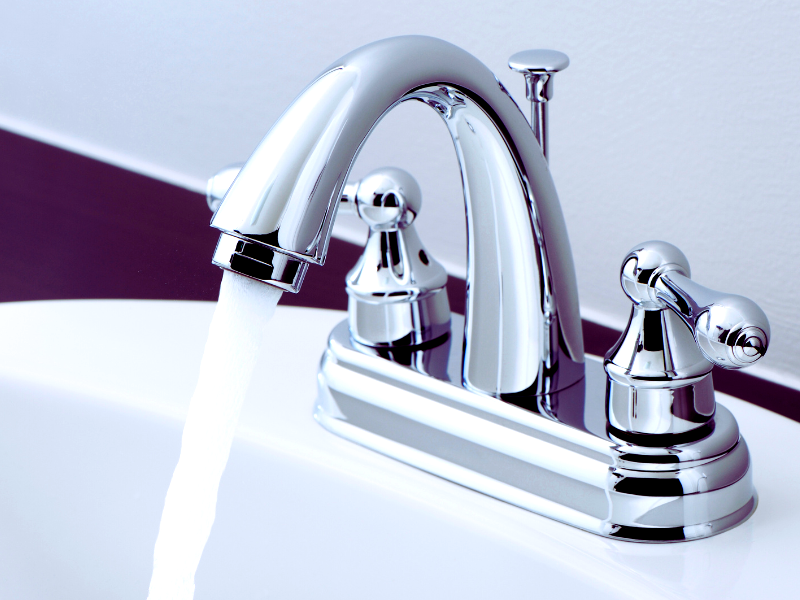
Several factors will determine if a sediment filter will lower water pressure in your home. The size of the filter, what sediment it catches, and the overall condition of your plumbing system will all play a role. For example, a larger filter with a higher flow rate will have less impact on water pressure than a smaller, more restrictive filter.
Also, the incoming pressure from your water supply will affect how much pressure is lost through the filter. If your home already has low water pressure, a sediment filter will worsen it. If your home has high incoming pressure, you may not notice a drop at all.
Regular Maintenance
Regular maintenance is key to not dropping water pressure. Sediment filters can get clogged with particles over time and restrict water flow. Replacing the filter cartridge at recommended intervals will keep the water pressure optimal.
Also, monitor the pressure gauge on your filter system. A big drop in pressure means the filter needs to be replaced. By monitoring the pressure gauge, you can catch issues before they become big problems.
Choosing the Right Filter
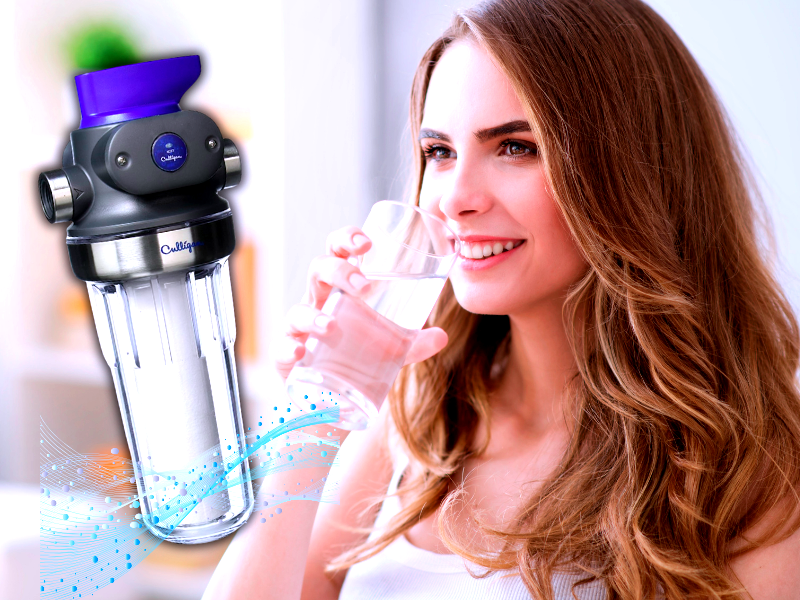
Choosing the right whole-house filter for your home is key to water pressure and water quality. Whole-house water filters come in different sizes and types, each designed to handle different levels of sediment. A filter with a higher micron rating will catch larger particles and have less impact on water pressure, while a filter with a lower micron rating will catch smaller particles but drop more pressure.
Consult with a professional to choose the right filter for your situation. They can test your water and recommend a filter that balances sediment removal with minimal pressure loss.
Installation
Proper installation of your sediment filter is another key factor in water pressure. A poorly installed filter can cause leaks, pressure drops, and other issues. To prevent these problems, make sure the filter is installed correctly and all connections are secure.
Also, consider where you install the filter in your plumbing system. Installing the filter at the main water supply line will filter all the water coming into your home but will also mean any pressure loss will affect the whole house. In some cases, installing additional filters at specific points, like the kitchen sink or shower, can help manage pressure better.
Pressure Tanks and Switches
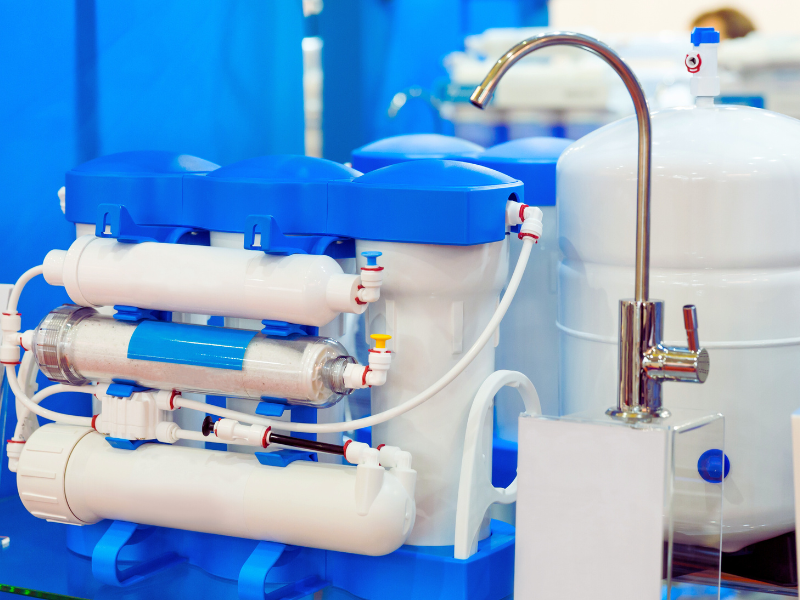
Pressure tanks and pressure switches with sediment filters are important in maintaining water pressure in homes. A pressure tank stores a reserve of pressurized water, which can compensate for any pressure loss from the filter. Pressure switches control the pump in well water systems to maintain a consistent pressure. Adjusting the settings on the pressure switch can manage pressure loss and give you a steady flow of water.
Whole House Filtration Systems
Whole house filtration systems do more than just remove sediment. They can remove chlorine, heavy metals, and other contaminants. This makes your water safer to drink and protects your plumbing and appliances from damage. By installing a whole house filtration system you can have cleaner healthier water throughout your home. This means better-tasting water, softer skin and hair, and longer-lasting appliances.
Common Issues and Solutions
One common issue with sediment filters is pressure loss due to clogging. Replacing the filter cartridge regularly can prevent this problem. If you notice a big drop in water pressure, it’s time to replace the filter. Another issue is improper installation, which can cause leaks and pressure drops. Make sure the filter is installed correctly, and all connections are secure to prevent these problems.
Tips to Improve Your Water Pressure

If you have low water pressure, here are some tips to help you improve it:
- Check your pressure tank: If you have a well, ensure it works correctly. Check the pressure switch and make sure it’s set to the correct pressure range.
- Maintain your water filter system: Regular maintenance of your whole-house water filter system will help maintain optimal water pressure. Replace filter cartridges as recommended and clean or replace the filter housing as needed.
- Treat limescale: Limescale buildup in pipes can reduce water pressure. To prevent this, consider installing a water softener or salt-free water conditioner.
- Check your faucets: Clogged faucet aerators can reduce water pressure. Check the kitchen tap and other faucets for buildup and clean or replace them as needed.
- Change your use patterns: Changing your water use patterns can reduce peak demand on your water filter system. Stagger showers, run the dishwasher and washing machine off-hours, and backwash softeners overnight.
- Upgrade your filter: If your whole-house water filter system is old or undersized, it may contribute to low water pressure. Consider upgrading to a more efficient system or one with a higher flow rate.
- Check your plumbing: Leaks or blockages in your plumbing can reduce water pressure. Check your pipes for signs of damage or corrosion and repair or replace them as needed.
By following these tips, you can improve your water pressure and maintain a steady supply of clean filtered water throughout your home.
Summary
In summary, a water sediment filter is a great way to ensure you have clean water at home, but it can sometimes reduce water pressure. How much it affects your water pressure depends on several things, like the size of the filter, the quality of your water, and how well you keep up with maintenance.
To enjoy fresh and clean water without losing too much pressure, homeowners should pick the right filter for their needs, make sure to maintain it regularly and install it correctly. By taking these steps, you can enjoy great-tasting water while keeping the pressure just right for your home!
Keep up with the latest water filter tips and offers, and subscribe to our newsletter today!
FAQ
How often should I replace my sediment filter?
Replace your sediment filter as often as your water quality and usage require, generally every 3 to 6 months. If you notice a big drop in water pressure, it may be time to replace the filter sooner.
Can a sediment filter remove chlorine from my water?
No, sediment filters are designed to remove particles like sand, silt, and rust. To remove chlorine and other chemicals, you would need a carbon filter or a whole-house filtration system.
Will a sediment filter slow down my water flow?
Yes, a sediment filter can slow down your water flow, especially if it clogs. Choose a filter with a higher flow rate and maintain it regularly to minimize the impact on water flow.
